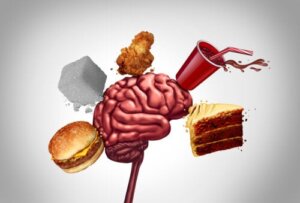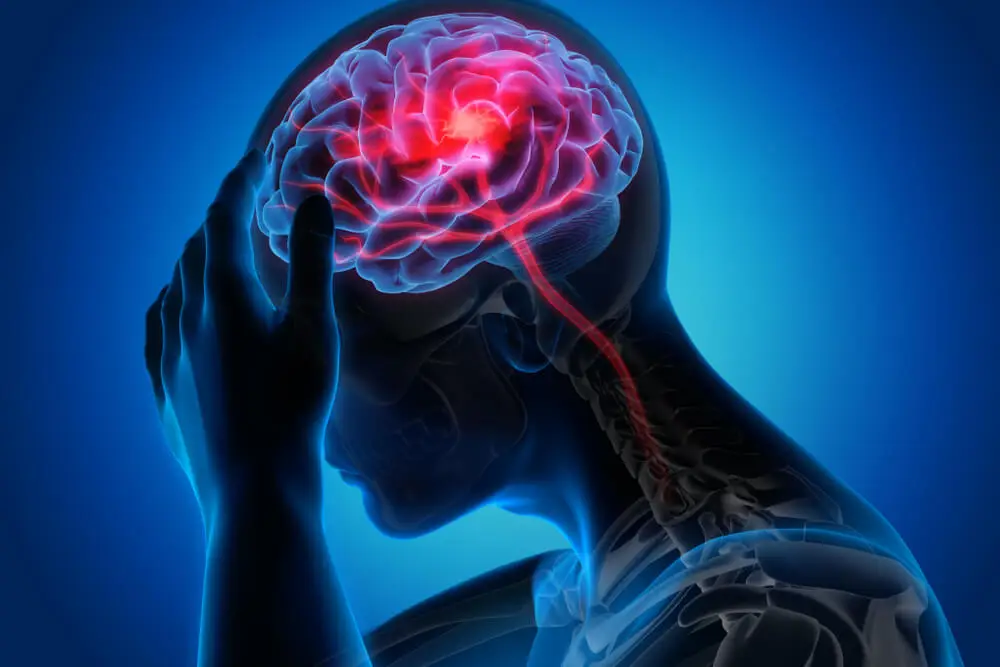What Are the Effects of Ultra-processed Foods on Mental Health?


Written and verified by the nutritionist Saúl Sánchez Arias
Mass-produced ultra-processed foods have a number of negative effects on our mental health. These products concentrate inflammatory substances that can impair neuronal plasticity.
It should be noted that this series of foodstuffs are made with artificial additives of dubious quality. These could also influence the microbiota, which determines the passage of toxic substances to the encephalic area.
How do ultra-processed products affect mental health?
According to research published in the journal Neurology, the regular intake of industrial ultra-processed products increases the incidence of dementia and other neurodegenerative pathologies. One of the reasons is that their presence in the diet influences the accumulation of toxins in the body, such as beta-amyloid compounds.
It’s important to note that ultra-processed products can also favor the genesis of free radicals in the body and their subsequent deposition in the tissues. From this point on, the speed of the aging processes will increase. It has even been possible to link the intake of these products with increased frailty in the elderly, according to a study published in The Journals of Gerontology.
Finally, you can find recent trials that associate the presence of factory processed foods in the diet with a higher prevalence of depression in adults. The risk is even higher when the level of physical activity is low.
After all, improving your diet and avoiding a sedentary lifestyle are two key points when the goal is to maintain good health.
In any case, not all ultra-processed foods are equally harmful. The worst are those made with poor-quality fats, such as refined coconut oil or palm oil. These are the most inflammatory.

We think you may be interested in reading this, too: Two Foods to Cut Out of Your Diet to Reduce Swelling and Lose Weight
The effects of ultra-processed foods on the gut microbiota
The close communication that exists between the intestine and the brain is now known. It is largely mediated by the microbiota, the set of microorganisms that inhabit the digestive tract.
Therefore, maintaining their diversity and density will help to reduce the risk of experiencing diseases. Among them are depression, anxiety, and neurodegenerative diseases.
The diet can largely condition the functioning of the microbiota and its characteristics. Simple sugars, artificial additives, and trans fats negatively affect the microbes of the digestive tract. Thus, toxins are more likely to cross the intestinal barrier and reach the bloodstream and then spread to different tissues.
To avoid this problem, it’s not only necessary to reduce your consumption of ultra-processed foods, but it’s also crucial to include fermented foods of dairy origin and fiber in sufficient quantities in our routines. In this sense, the main dietary guidelines recommend the intake of at least 25 grams of fiber every day to experience benefits.
Not all fiber generates the same effect. The one that has more impact on the microbiota is the soluble type. It increases in size with water and ferments.This serves as an energetic substrate for bacteria and thanks to it, anti-inflammatory compounds, such as short-chain fatty acids, are synthesized. Butyrate would be an example.
A healthy microbiota to treat depression
The microbiota-gut-brain axis is increasingly studied. Recent research has shown that it may be possible to improve clinical pictures of mental health with a correct recomposition of the microbiota.
In other words, probiotics may be added to the treatment of depression in the near future. Modulators of the bacterial flora could increase the response of patients to antidepressants.
Following the same thought, the reduction of ultra-processed foods in the diet would be a protective factor for mental health. Its reduction in your diet can improve the microbiota and, with this, the risk of progressing toward depressive or anxious clinical states would be controlled.

Like this article? You may also like to read: Buffer Foods: What Are They and Why Consume Them?
Ultra-processed foods do harm mental health
Ultra-processed foods have a negative effect on people’s mental health. They increase the levels of inflammation and oxidation in the body. They can even contain toxic elements that accumulate in the tissues and interfere with normal physiological functioning.
For this reason, their presence in your diet should be limited as much as possible.
Maintaining good routines will help improve your mental health. An indispensable aspect is the quality of your sleep, as well as physical exercise and healthy habits.
Mental health is complex and multi-causal. Its improvement or worsening cannot be attributed to a single factor. Even so, the negative role of ultra-processed foods seems to be evident.
All cited sources were thoroughly reviewed by our team to ensure their quality, reliability, currency, and validity. The bibliography of this article was considered reliable and of academic or scientific accuracy.
- Li H, Li S, Yang H, et al. Association of Ultraprocessed Food Consumption With Risk of Dementia: A Prospective Cohort [published online ahead of print, 2022 Jul 27]. Neurology. 2022;10.1212/WNL.0000000000200871. doi:10.1212/WNL.0000000000200871
- Sandoval-Insausti H, Blanco-Rojo R, Graciani A, et al. Ultra-processed Food Consumption and Incident Frailty: A Prospective Cohort Study of Older Adults. J Gerontol A Biol Sci Med Sci. 2020;75(6):1126-1133. doi:10.1093/gerona/glz140
- Gómez-Donoso C, Sánchez-Villegas A, Martínez-González MA, et al. Ultra-processed food consumption and the incidence of depression in a Mediterranean cohort: the SUN Project. Eur J Nutr. 2020;59(3):1093-1103. doi:10.1007/s00394-019-01970-1
- Castañeda Guillot, Carlos. “Microbiota intestinal y trastornos del comportamiento mental.” Revista Cubana de Pediatría 92.2 (2020).
- Jimenez-Badilla, Iveth, and Luis Acuña-Amador. “Evidencias clínicas del uso de moduladores de la microbiota intestinal para el tratamiento de trastornos mentales: una revisión bibliográfica sistemática.” Psiquiatría Biológica 28.2 (2021): 100315.
This text is provided for informational purposes only and does not replace consultation with a professional. If in doubt, consult your specialist.








